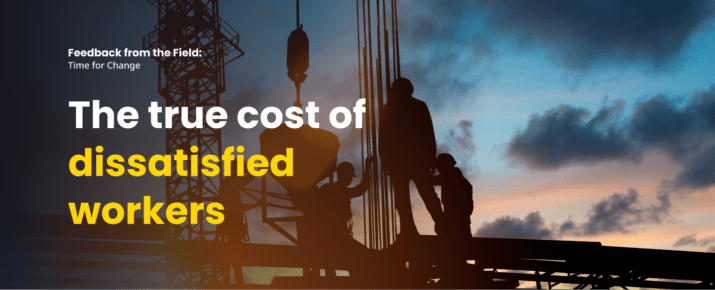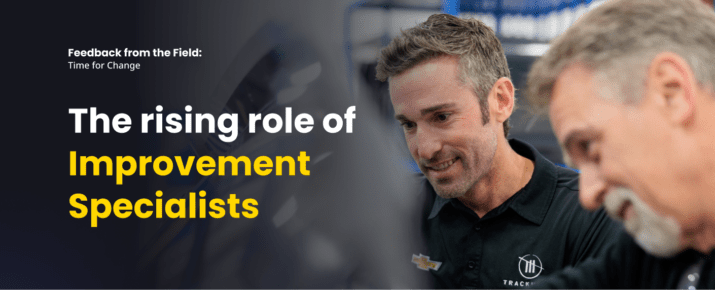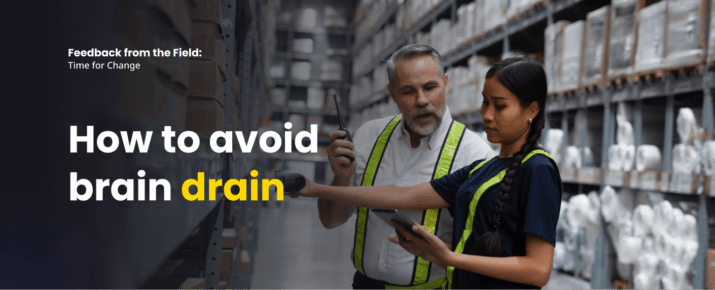Seen but not heard: Researching the frontline experience with YouGov
Feedback From The Field | By | 9 Nov 2021 | 3 minute read

They hold consumer safety, product quality and brand reputation in their hands. But are we giving our frontline staff the tools and support they need to do their best work, every day? Our latest global research reveals that frontline workers still face a battle to be listened to on issues that matter most to them.
In recent years we’ve seen the public rally behind our frontline workers. From retail and hospitality staff to manufacturing and logistics workers, they are our eyes and ears on the ground; the ones at the actionable point of risk. They’re the executors of customer service and in doing so key brand guardians.
They’re also the ones closest to operations on the ground, providing a unique window into places of work. This means they are pivotal to driving organizational change and capturing crucial data points. To be truly adaptive and build better ways of working, we have to make data-driven decisions and move away from being reactive, to actually anticipating and predicting risk or change.
However, despite their value and critical role, our frontline workers are still underserved… and going unheard.
Feedback from the field
As organizations navigate the Great Resignation of 2021, SafetyCulture and YouGov partnered up to explore the experiences of American, British and Australian frontline workers. We looked at whether they felt listened to, empowered to take action, and if they were getting the support they needed.
One thing became clear as we gathered feedback from the field.
Traditional ways of working are no longer working.
The majority of frontline workers feel unheard by upper management and organizations have a ways to go when it comes to giving their workers a voice.
The new Feedback from the Field research report found that the majority of American, Australian, and British frontline workers (67%) say that they are never, rarely, or only sometimes listened to on topics that matter to them the most – operations (54%), safety (46%), and health/wellbeing (49%). In fact, 66% of American frontline workers said they are rarely, never, or only sometimes listened to by management on these important topics.*
Bob Butler, Global General Manager of SafetyCulture said, “While frontline workers have kept our nations running over the past 18 months, many don’t feel that their voices are valued. It’s clear that these critical workers want a say in the operations and running of their workplaces. Two-way communication between frontline workers and management is no longer a ‘nice to have’, it is a business imperative. Leaders need to be arming their teams with the right tools to allow them to add value, be heard, and stay safe.”
The Great Resignation is a stark reminder that the market is moving quickly and organizations need to pay attention. Our experience as a business focused on improving workplace safety and efficiency is that for an organization to thrive in the current environment, frontline workers need to be given the right tools and working conditions to drive that momentum.
What frontline workers want in a new role may be different to what you think. Our new research reveals what’s key to attracting and retaining talent. The companies staying ahead of the curve are the ones that listen to the needs of workers and make an effort to gather feedback and address pain points. The demands on our workforces have never been higher. Establishing feedback loops that aren’t just lip service, but acted upon, will be key to minimizing attrition.
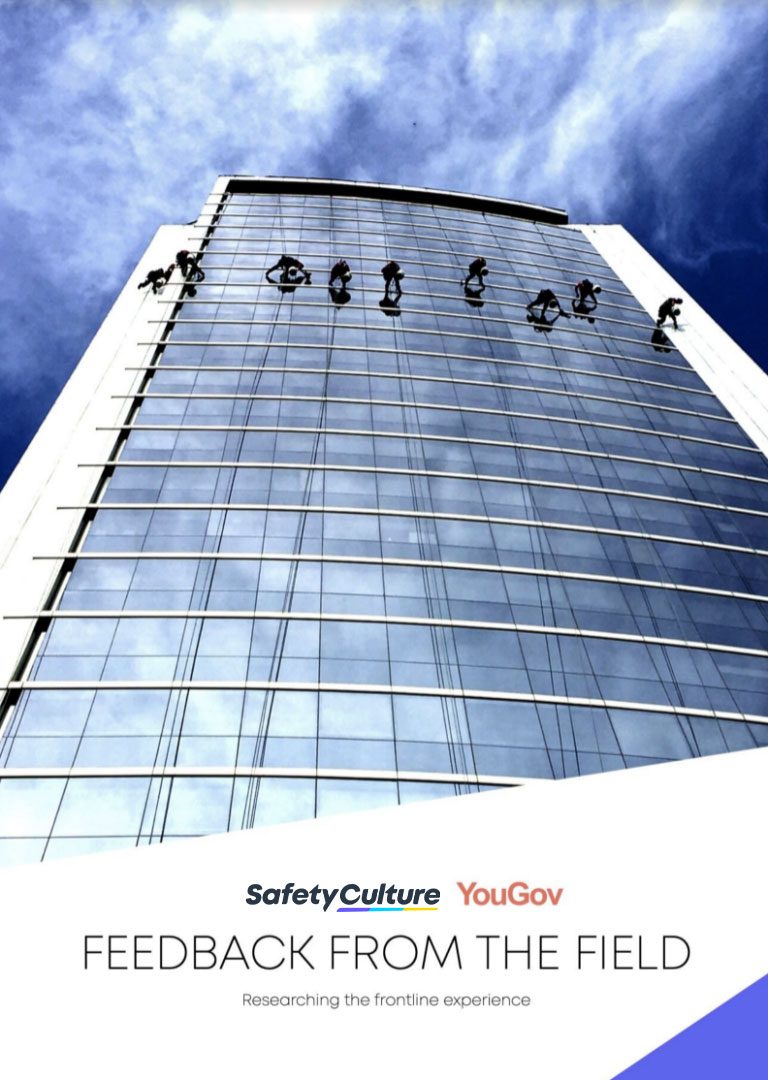
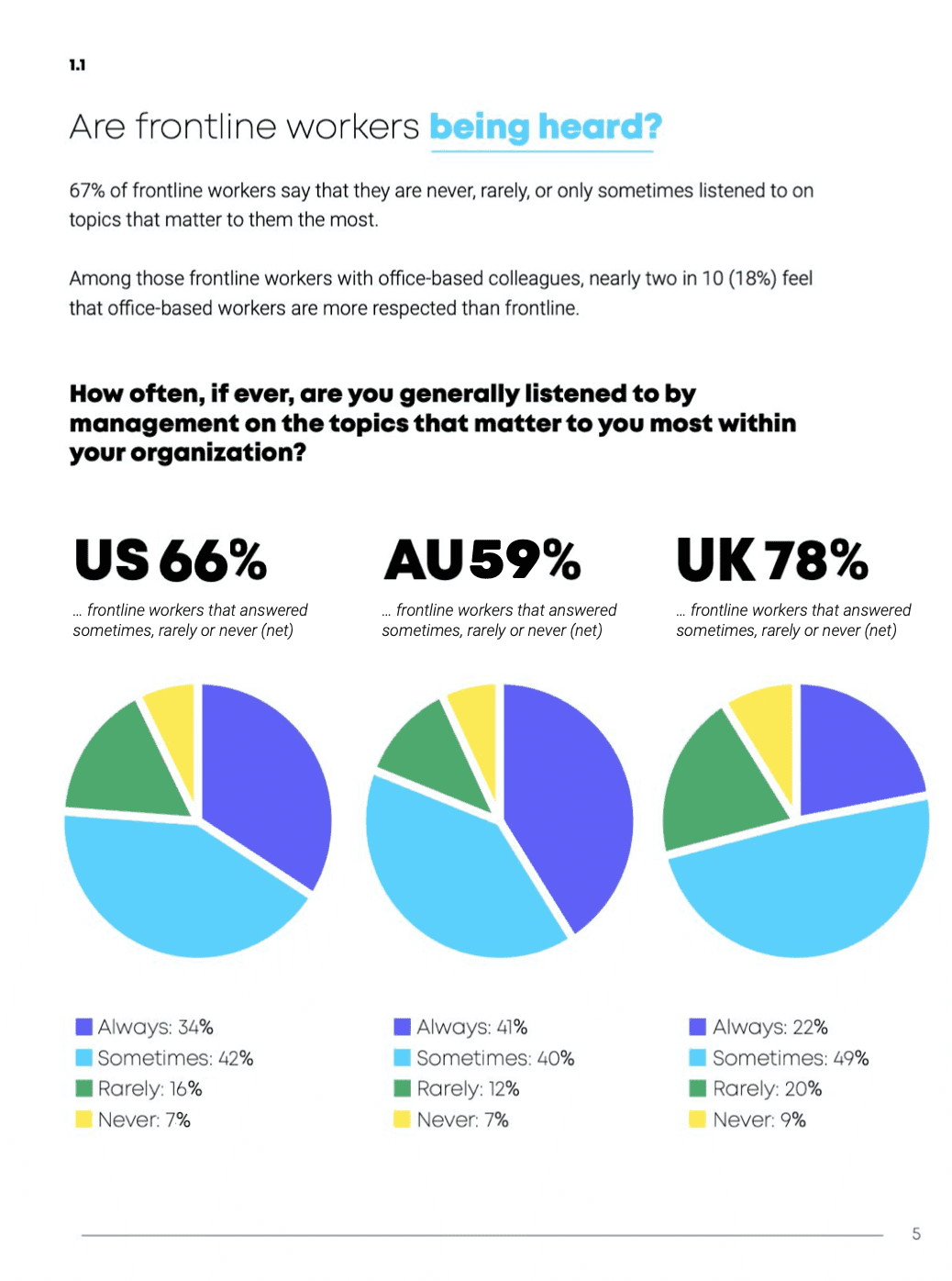
*All figures, unless otherwise stated, are from YouGov Plc. Total sample size was 1950 adults (861 US, 554 Australia, 535 UK). Fieldwork was undertaken between 27th August – 9th September 2021. The survey was carried out online. The figures have been weighted and are representative of US, UK and AU frontline workers (aged 18+).
Important Notice
The information contained in this article is general in nature and you should consider whether the information is appropriate to your specific needs. Legal and other matters referred to in this article are based on our interpretation of laws existing at the time and should not be relied on in place of professional advice. We are not responsible for the content of any site owned by a third party that may be linked to this article. SafetyCulture disclaims all liability (except for any liability which by law cannot be excluded) for any error, inaccuracy, or omission from the information contained in this article, any site linked to this article, and any loss or damage suffered by any person directly or indirectly through relying on this information.
